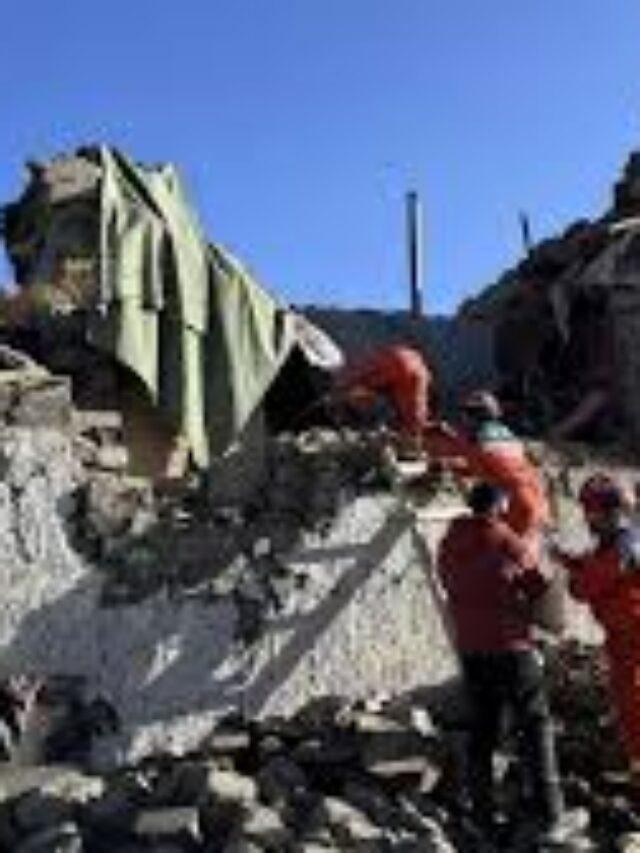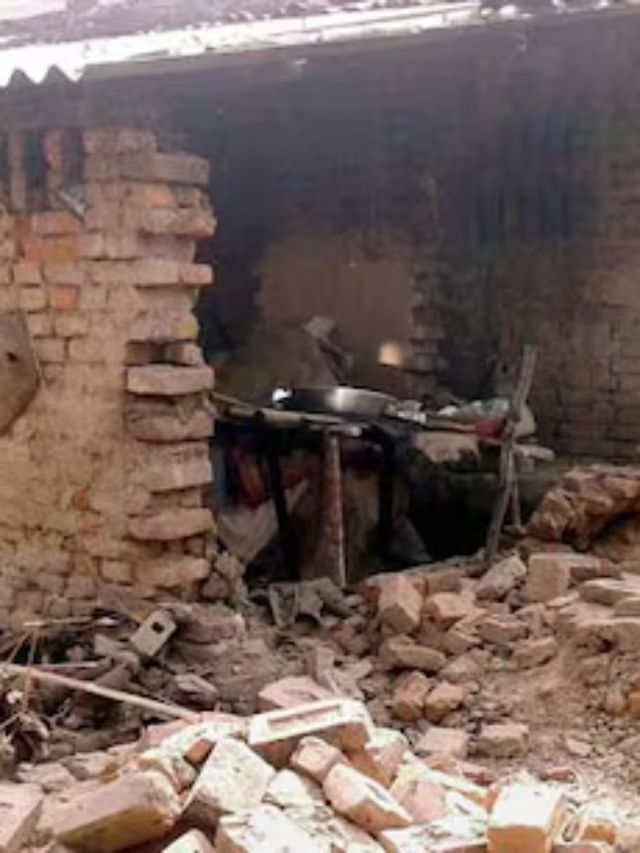
Justin Trudeau Steps Down as Prime Minister: A New Chapter for Canada’s Leadership
Justin Trudeau, the Prime Minister of Canada for nearly nine years, has announced his resignation, effective immediately. This decision marks the end of an era in Canadian politics, sparking intense debates about the future of the country’s leadership and the challenges ahead. As one of Canada’s most recognizable political figures, Trudeau’s resignation has been met with mixed reactions, both within his own Liberal Party and among the Canadian public. This blog will delve into the key reasons behind his resignation, the immediate impact on the country, and the future leadership of the Liberal Party.
The Rise and Fall of Trudeau’s Leadership
Justin Trudeau assumed the office of Prime Minister in 2015, bringing with him a message of hope, change, and progress. His charisma, inclusive policies, and progressive values initially garnered widespread support. Trudeau’s government implemented several key reforms, including cannabis legalization, an emphasis on climate change action, and advancements in gender equality. However, his leadership has also been marked by controversies, which have eroded his support among various political groups.
Internal Dissent and Leadership Challenges
Trudeau’s resignation comes amid significant internal dissent within the Liberal Party. Many key members, including over 20 Liberal Members of Parliament (MPs), reportedly voiced their dissatisfaction with his leadership, and some even signed a petition demanding his resignation. These challenges were not limited to individual MPs but were part of a broader concern within the party about Trudeau’s ability to lead the country through difficult times.
Trudeau admitted that his leadership had become “paralyzed,” with little progress on key policies. Legislative stagnation, internal conflicts, and growing political pressure led to the realization that a change in leadership was necessary. The party had been struggling with a decline in popularity, as recent public opinion polls showed a dip in support for the Trudeau government.
The dissatisfaction with Trudeau’s leadership reached a boiling point, leading to the decision for him to step down. Many felt that his political brand of optimism and inclusivity had worn thin, especially in the face of mounting political, economic, and social challenges. Justin Trudeau Steps Down as Prime Minister
Caretaker Role Until Successor is Chosen
Although Trudeau has resigned as leader of the Liberal Party and Prime Minister, he will continue in a caretaker role until a new leader is selected. The Liberal Party has set a deadline of March 24 to choose a successor, ensuring that the party has a new leader in place before the upcoming federal elections, which are expected to be held later in the year.
This interim period is crucial for the Liberal Party, as it needs to maintain stability and unity during the leadership transition. Trudeau’s resignation does not mean an immediate end to his influence, as he will remain in office temporarily to ensure a smooth transition. However, his political future beyond this period remains uncertain.
The Contenders: Who Will Replace Trudeau?
The leadership vacuum left by Trudeau’s resignation has sparked speculation about who will replace him as leader of the Liberal Party and the next Prime Minister of Canada. Several key figures within the party are expected to throw their hats into the ring, and the competition promises to be intense.
Dominic LeBlanc, currently serving as the Minister of Intergovernmental Affairs, is one of the prominent names mentioned as a potential successor. His extensive experience in Canadian politics and close ties to Trudeau could make him a natural candidate for the leadership position.
Another possible contender is Mélanie Joly, the Minister of Foreign Affairs, who has earned praise for her diplomatic approach and global perspective. Her leadership would likely be seen as a continuation of Trudeau’s international policies, but with a fresh face and perhaps a more assertive tone. Justin Trudeau Steps Down as Prime Minister
François-Philippe Champagne, the Minister of Innovation, Science, and Industry, is another potential candidate. Known for his focus on economic development and technology, Champagne’s leadership could emphasize modernization and economic recovery, which will be key issues for Canada moving forward.
Mark Carney, a former Governor of the Bank of Canada and the Bank of England, has also been named as a possible contender. Carney’s experience in global finance and economics could provide a steady hand during a time of economic uncertainty and political unrest. However, his non-partisan background could either be seen as an asset or a liability in the fiercely competitive political environment.
Strained Ties with India and International Pressures
Trudeau’s resignation also comes at a time of growing tensions between Canada and India, following allegations from Trudeau’s government regarding India’s involvement in the killing of Khalistani terrorist Hardeep Singh Nijjar. These allegations were met with strong denials from India, and in retaliation, India expelled several Canadian diplomats. This diplomatic dispute has further strained Trudeau’s foreign relations, making his leadership more contentious.
The diplomatic row with India is just one of the international challenges that Trudeau faced during his tenure. Canada’s relations with China, the United States, and other global players have also been tested, particularly during the Trump administration. As a result, Trudeau’s foreign policy decisions were often scrutinized, and his ability to navigate these complex international issues was called into question. Justin Trudeau Steps Down as Prime Minister
Economic and Political Turmoil in Canada
Canada’s economy has been facing several challenges in recent years, including slowing growth, high inflation, and a stagnant GDP. These issues have put immense pressure on Trudeau’s government, which has been unable to offer a clear solution to the country’s economic problems. The Canadian dollar has faced fluctuations, and many Canadians are feeling the strain of rising living costs.
In addition to economic concerns, the political landscape has been increasingly polarized. Trudeau’s government has faced growing opposition from both the right and the left, making it difficult to pass major reforms or maintain support. His resignation can be seen as a recognition that Canada’s political system is in need of change and that a new leader may be able to unite the country and restore confidence in the government.
What Lies Ahead for Canada?
With federal elections approaching, Canada faces a crucial juncture. The Liberal Party must find a new leader who can address the challenges that Trudeau was unable to overcome. The party’s future success will depend on its ability to unite, present a coherent platform, and address the economic and political issues that are currently plaguing the country. Justin Trudeau Steps Down as Prime Minister
Canada’s relationship with the international community, particularly with India, will also be a significant factor in shaping the next leadership. The new leader will need to repair diplomatic ties and navigate the complex global landscape, particularly as Canada seeks to strengthen its position on the world stage.
Conclusion: A New Era for Canadian Politics
Justin Trudeau’s resignation marks the end of a significant political era in Canada. While his leadership was marked by both triumphs and controversies, his decision to step down signals a turning point for the Liberal Party and Canadian politics as a whole. As the country prepares for a new leader, the future of Canada’s economy, foreign relations, and political stability will depend on the leadership choices made in the coming months. Justin Trudeau Steps Down as Prime Minister
Whether the new leadership can unite the country and guide Canada through its current challenges remains to be seen. However, Trudeau’s departure from the political scene provides an opportunity for a fresh start, and it will be up to his successor to navigate the complexities of a rapidly changing world. The next chapter in Canadian politics is just beginning.
Do Follow Canada News
Latest Post
- “बसंत पंचमी: माँ सरस्वती की आराधना और ज्ञान का पर्व” | “माँ सरस्वती: ज्ञान, संगीत और विद्या की देवी” | Basant Panchami 2025: Celebrating Knowledge, Wisdom, and New Beginnings
- American Airlines Jet Collide Near Reagan Airport | Shocking Collision: American Airlines Jet and Army Black Hawk Helicopter Crash Near Reagan Airport – 5 Key Facts
- होलीका दहन कथा प्रहलाद होलिका | प्रहलाद और होलिका की पौराणिक कथा | Holika Dahan Story | The Mythological Tale of Prahlad and Holika you must know in 2025
- Sri Lanka vs Australia 1st Test : Sri Lanka vs Australia 1st Test: Thrilling Day 1 Action and Live Score Updates
- Judge Blocks Trump Aid Freeze | Judge Temporarily Halts Trump Administration’s Federal Aid Freeze Plan
Latest Comments
I have fun with, cause I discovered just what I used to be having a look for. You have ended…
If the whole world is against you, I am with the world ✌🏻
nice
Wow what great news for india
Follow Us
Share this post :









Leave a Reply